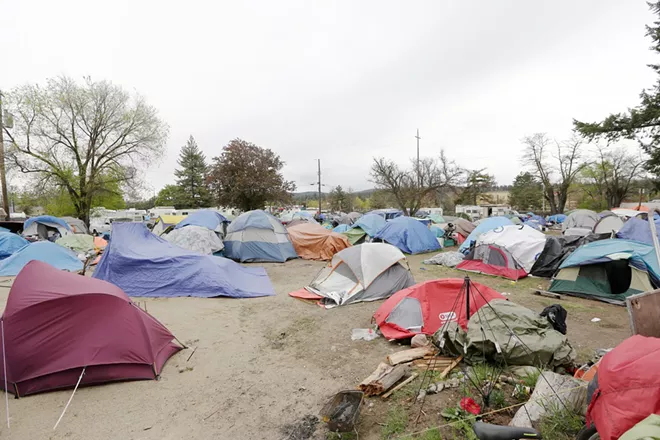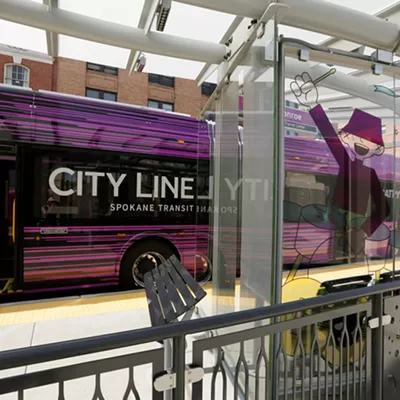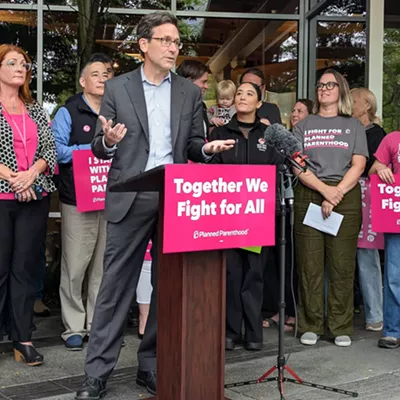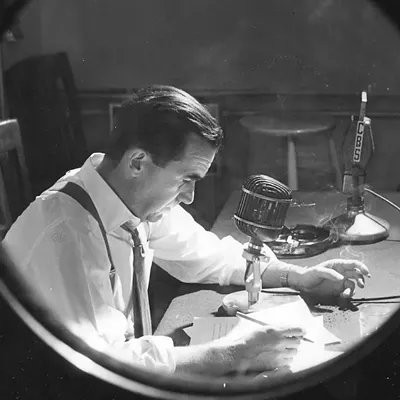In our last column, we observed that collaboration and partnerships are the only way really big things get accomplished in Spokane. We also promised some insights into the secret sauce we've used in the past, along with outlining some opportunities to apply it going forward.
On a recent trip to Houston organized by the Spokane nonprofit Housing & Help, we saw firsthand how collaboration and partnerships are combating the issue of homelessness there. Ten years ago, Houston, the fourth-largest city in the United States, was listed as one of the country's worst for homelessness. In response, leaders in the areas of business, community, nonprofits and philanthropy formed a coalition, The Way Home, to coordinate more than 100 partner organizations to collaboratively address and reduce homelessness. The result? Since 2011, Houston has housed more than 25,000 formerly homeless individuals, reducing homelessness by 63 percent, and resulting in the lowest homelessness rate for any large city in America. Moreover, they have accomplished this without relying on big tax increases.
Spokane has the same opportunity. The increase and devastation of people experiencing homelessness has become painfully visible throughout our community and is spreading well beyond its downtown origins. Consider Camp Hope off Freya Street north of I-90. What began as a small encampment in front of City Hall last December is now Spokane's fastest-growing neighborhood with more than 600 people. And this is just one of many encampments that continue to spring up across our city. We're not alone. As our people and local economies are ravaged by this escalating problem, opinion polls across Washington state rate homelessness as our single biggest challenge.
So how do we begin using collaboration and partnerships to fix homelessness in Spokane? Two ingredients are vital: (1) build community consensus and belief that we really can do it, and (2) advance a "go big/get it done" approach around a clear and shared goal.
Let's start with consensus and belief. There's an old saying: "Whether you think you can, or you think you can't — you're right." And why should we choose to think we can fix homelessness? The numbers. We can't afford not to fix it. Consider these cost figures from Houston:
Annual public resources spent for a chronically homeless person living on the streets: $41,200. (This includes emergency room visits for routine care, public safety costs, and myriad medical and other support costs for triaging life on the streets.)
Annual cost estimate to place an unsheltered person in housing with appropriate support services: $17,500.
Discussions on homelessness and its causes are hotly divisive. And there will always be disagreement on how to measure the full cost of homelessness to a community. But the financial takeaway is crystal clear: We're bleeding tax dollars by NOT fixing it.
Next, we must advance a "go big/get it done" response to homelessness — no more piecemeal, Band-Aid approaches.
Since 2011, Houston has housed more than 25,000 formerly homeless individuals, reducing homelessness by 63 percent...
We recall a good example of this thinking from the early 2000s when Spokane's big issue of the day was our terrible, decaying streets. City government's request to issue $45 million in street improvement bonds was soundly rejected by voters. Newly elected Mayor Jim West surprised everyone by requesting a street bond nearly three times larger! When we asked how the much bigger request had any chance of passing, West replied that Spokanites don't like half-measures — they want problems fixed. Sure enough, the bond was approved by a 66 percent margin. And in the years since, actually fixing streets has produced big cost savings over endlessly patching crumbling streets.
A "go big/get it done" response to people experiencing homelessness will require a clear and shared goal — something like reducing homelessness by 80 percent over 10 years. Setting shared goals around homelessness has clearly failed in most other cities, but in Spokane — where everybody still knows everybody and our politics lean toward our shared Inland Northwest values — it's something we still do well. And with our people, businesses, downtown and entire community hanging in the balance, this is a goal we cannot afford not to set.
Finally, extraordinary leadership is needed to drive the many community partnerships and collaborations needed to make our goal of solving homelessness a reality. Local governments, homeless service and housing agencies, the business community and many other stakeholders — including people experiencing homelessness — must be convened to work closely and with a great sense of urgency toward a clear goal by a specific date. And this brings us right back to collaboration and partnerships being hard.
But recall that partnerships and collaborations are things Spokane is very good at. And thankfully, work is already underway at City Hall, at Spokane County and with many community organizations, including Hello for Good, a business group that has already created large forums and brought together more than 100 local organizations to work toward addressing homelessness in Spokane.
Much more needs to happen — QUICKLY. In our next column, we will offer some food for thought about how we might "go big" on our homelessness issue. ♦
Gavin Cooley was the city of Spokane's chief financial officer for 17 years, serving five different mayors, starting with Jim West. He currently is working with the city on projects including investments and the Spokane River Trail System. Rick Romero is the former utilities director and director of strategic planning for the city of Spokane. He worked on a variety of projects, including the renovation of Riverfront Park, the Podium and the downtown Spokane football stadium.





















